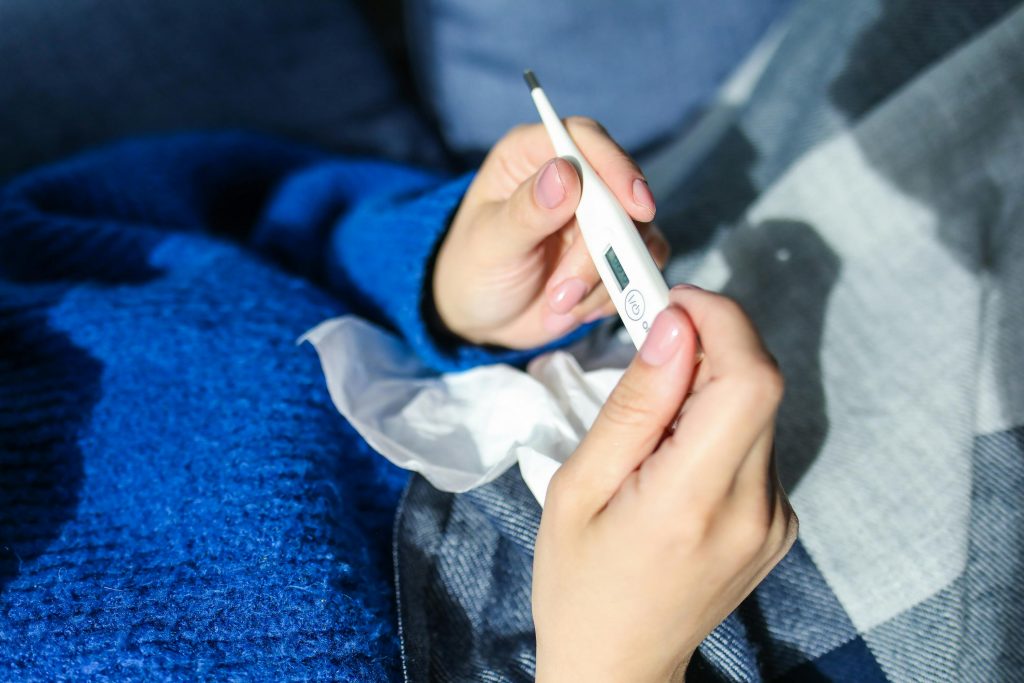Staying healthy isn’t about luck—it’s about consistent habits that protect your body every day. While you can’t control every germ you come across, you can strengthen your immune system, reduce exposure to viruses and bacteria, and set up daily routines that make illness far less likely. Learning how to avoid getting sick becomes easier when you break it down into manageable steps, and this guide will walk you through everything you need to know.
Below, you’ll find practical advice written in simple, clear language. Each section includes detailed explanations and helpful bullet points so you can apply the tips to your daily life. Whether you’re a student, a busy parent, an office worker, or someone who simply wants to boost your health, these strategies will help you stay well year-round.
Why Preventing Illness Matters

Getting sick affects more than your physical health. It disrupts your routine, limits productivity, drains your energy, and can spread to those around you. Preventing illness isn’t just about avoiding discomfort—it’s about maintaining your overall well-being.
Strong prevention habits help you:
- Stay energized and focused.
- Reduce healthcare costs.
- Miss fewer days of work or school.
- Protect vulnerable family members.
- Maintain a stable daily routine.
- Improve your long-term health.
When you understand why prevention is important, it becomes easier to commit to the habits that keep your body strong.
1. Strengthen Your Immune System Daily
Your immune system is your body’s natural defense against germs. The stronger it is, the harder it is for viruses and bacteria to make you sick. Building a strong immune system is not a one-time task—it’s the result of consistent daily habits.
Eat a Balanced Diet
Food fuels your immune cells. Choosing whole, nutrient-rich foods helps your body fight off infections.
A strong immune-boosting diet includes:
- Fruits and vegetables: spinach, oranges, berries, bell peppers, broccoli
- Lean proteins: chicken, turkey, fish, eggs, beans
- Healthy fats: nuts, seeds, avocados, olive oil
- Whole grains: oats, brown rice, quinoa
These foods provide vitamins like A, C, D, and E, along with zinc and antioxidants that keep your immune system functioning properly.
Stay Hydrated
Water moves nutrients through your body, removes waste, and keeps your cells healthy. It also helps your lungs and sinuses stay moist, making it harder for viruses to multiply.
- Aim for 6–8 cups of water a day.
- Drink more when you’re active or sweating.
- Add fruit slices if you need more flavor.
Move Your Body Regularly
Exercise boosts circulation and encourages your immune system to work more efficiently. You don’t need intense workouts—moderate activity is more than enough.
Try activities like:
- Walking
- Light jogging
- Yoga or stretching
- Cycling
- Swimming
Aim for 30 minutes most days of the week.
Get Quality Sleep
Sleep is when your immune system repairs itself. Poor sleep weakens your defenses and increases your chances of getting sick.
To improve your sleep:
- Go to bed and wake up at the same time daily.
- Keep your bedroom cool and dark.
- Limit screens before bedtime.
- Avoid heavy meals late at night.
Most people need 7–9 hours each night.
2. Keep Your Hands Clean
Handwashing is still one of the most effective ways to prevent illness. Your hands touch countless surfaces every day, picking up germs that easily transfer to your face, mouth, and eyes.
Wash Your Hands Properly
Use warm water and soap and scrub for at least 20 seconds. Make sure to clean between your fingers and under your nails.
Wash your hands:
- After using the bathroom
- Before eating or preparing food
- After touching shared surfaces
- After blowing your nose, coughing, or sneezing
- When arriving home
Use Hand Sanitizer When Needed
If soap and water aren’t available, use a hand sanitizer with at least 60% alcohol.
Sanitizer works well when:
- You’re in public places
- You’ve touched doorknobs or handrails
- You’re traveling
- You’re handling shared items
Good hand hygiene can prevent countless illnesses, from the common cold to more serious infections.
3. Avoid Germ Hotspots
Germs spread easily in crowded places and on frequently touched surfaces. Being aware of high-risk areas helps you avoid unnecessary exposure.
High-Germ Environments to Watch Out For
Common hotspots include:
- Public restrooms
- Grocery store carts
- Elevator buttons
- Door handles
- Classroom desks
- Gym equipment
- Shared keyboards and phones
Whenever you’re in these environments, avoid touching your face and wash your hands afterward.
Minimize Close Contact When Sick People Are Around
If someone near you is coughing or sneezing, try to create distance when possible.
Simple habits that help:
- Sit farther away in waiting rooms.
- Avoid sharing drinks or utensils.
- Don’t hug or shake hands when someone feels ill.
- Wear a mask if someone in your home is sick.
It’s not about being rude—it’s about protecting your health.
4. Keep Your Living Space Clean
A clean home reduces the number of germs you encounter each day. Regular cleaning doesn’t have to be overwhelming—small, consistent habits make a big difference.
Disinfect High-Touch Areas
Wipe down commonly touched surfaces frequently. These can include:
- Light switches
- Remote controls
- Phones and tablets
- Door knobs
- Faucet handles
- Countertops
Use disinfecting wipes or a cleaning spray that kills germs.
Clean Your Bedroom and Bedding Often
Your bedroom is where you spend the most time, so keeping it clean protects your health.
Make sure to:
- Wash bedding every 1–2 weeks.
- Dust shelves and surfaces regularly.
- Clean your pillow and mattress as needed.
- Let fresh air circulate by opening windows when weather allows.
Keep Shared Spaces Tidy
If you live with others, shared areas like bathrooms and kitchens must be cleaned regularly.
Helpful habits include:
- Cleaning kitchen counters after cooking
- Washing dishes promptly
- Keeping bathroom sinks and toilets clean
- Disinfecting fridge handles and appliances
A clean environment lowers your chances of picking up harmful bacteria or viruses.
5. Practice Good Personal Hygiene

Personal hygiene plays a major role in preventing illness. Keeping your body clean and well-groomed helps stop germs from spreading.
Shower Regularly
Showering removes dirt, oil, and germs from your skin. It also helps you feel refreshed and energized.
Good shower habits:
- Shower daily or every other day depending on activity level
- Wash your hair regularly
- Use clean towels and replace them often
Keep Nails Trimmed and Clean
Bacteria can hide under long fingernails. Keeping them short and clean reduces the risk of transferring germs to your mouth or face.
Avoid Touching Your Face
Many illnesses enter your body through the eyes, nose, or mouth. Even if your hands look clean, they can still carry germs.
Try to minimize:
- Rubbing your eyes
- Resting your face on your hands
- Touching your mouth or nose
6. Manage Stress Effectively
Stress weakens your immune system, making you more likely to get sick. When you’re stressed, your body produces hormones that reduce your ability to fight infections.
Why Stress Affects Your Health
High stress can:
- Disrupt sleep
- Cause unhealthy cravings
- Lower your immune response
- Increase inflammation
- Reduce energy
By lowering stress, you strengthen your body’s defenses.
Healthy Ways to Reduce Stress
Try activities like:
- Taking deep breaths
- Practicing yoga
- Journaling
- Reading
- Spending time outdoors
- Taking short breaks during the day
- Talking to someone you trust
Even a few minutes of stress relief each day can make a difference.
7. Make Smart Choices in Public Spaces
Public areas can expose you to more germs, but simple precautions help you stay safe.
Use Barriers When Possible
You can reduce direct contact with germs by using small barriers such as:
- Tissues on door handles
- Sleeves to push elevator buttons
- Disposable wipes for grocery carts
These small habits prevent germs from getting onto your hands.
Stay Mindful in Crowded Areas
In places like malls or public transportation:
- Keep a safe distance from people who appear sick
- Avoid touching your face
- Use sanitizer often
- Try not to eat with unwashed hands
Awareness helps you stay healthy without adding stress.
8. Boost Your Health With Smart Daily Habits
Even small changes in your routine can dramatically reduce your chances of getting sick.
Maintain a Healthy Weight
Balanced eating and regular activity help your immune system stay strong.
Limit Alcohol and Avoid Smoking
Both habits weaken your immune system and make it harder for your body to fight infections.
Stay Up to Date With Vaccines
Vaccines protect you from serious illnesses and reduce your risk of spreading germs to others.
- Annual flu shot
- Routine vaccines recommended by your doctor
- Updated boosters when needed
Take Breaks and Don’t Overwork Yourself
Exhaustion lowers your immunity, so balance your schedule and rest when needed.
9. Stay Healthy at Work or School
You spend many hours in these environments, making them a common source of germs.
Keep Your Workspace Clean
Wipe down items such as:
- Keyboards
- Phones
- Desk surfaces
- Pens
- Headphones
Avoid Sharing Personal Items
Germs spread quickly through shared items like:
- Water bottles
- Earbuds
- Makeup
- Towels
- Utensils
Take Regular Movement Breaks
Sitting too long affects circulation and energy.
Short breaks help you:
- Stay alert
- Reduce stress
- Boost immunity
- Improve mood
10. Support Your Health With Smart Food, Supplements & Habits
While food is the best source of nutrients, some supplements support the immune system, especially during cold and flu season.
Helpful Supplements (With Doctor Approval)
- Vitamin C
- Vitamin D
- Zinc
- Probiotics
Always talk to a healthcare provider before starting new supplements.
Eat Immune-Boosting Foods
Include foods like:
- Citrus fruits
- Berries
- Garlic
- Ginger
- Yogurt
- Leafy greens
- Almonds
These foods help your body stay strong through all seasons.
Final Thoughts
Avoiding illness isn’t about living in fear of germs—it’s about making smart, healthy choices every day. By strengthening your immune system, practicing good hygiene, eating well, sleeping enough, cleaning your environment, and managing stress, you give your body the tools it needs to stay healthy.
Small habits create big results. When you stay consistent, you’ll notice improvements not just in how often you get sick, but in your overall energy, mood, and daily performance. Staying healthy is one of the best investments you can make in your life.


